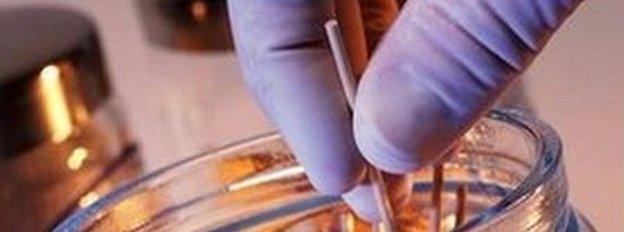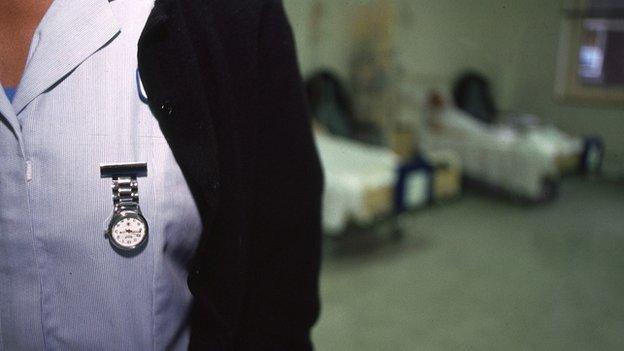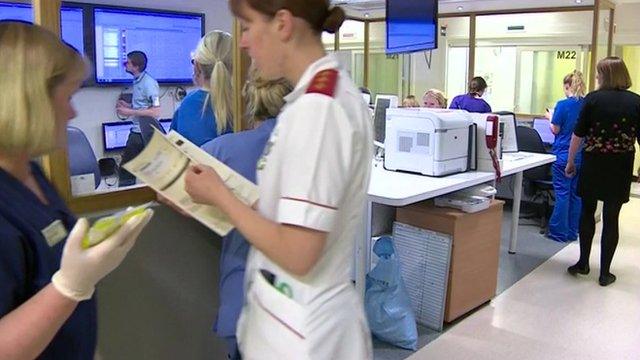Simple steps 'could save NHS £5bn'
- Published
- comments
Lord Carter: "We have not used the buying power that we've got nationally, effectively"
The NHS in England could save £5bn a year with improved staff organisation and a better approach to purchasing, a review will say.
Lord Carter came to the conclusion after spending a year working with 22 hospitals on behalf of the government.
He found a wide variation in spending across medicines, everyday items and on facilities, such as heating.
He also identified huge inefficiencies in the way staff were managed, with one hospital losing £10,000 a month through workers claiming too much leave.
The report, which will be published in full later, will also say hospitals need to make better use of staff through flexible working and better rostering.
Meanwhile, better use of medicines could also have a substantial impact, the efficiency review said.
Lord Carter found one hospital had managed to save £40,000 a year by using non-soluble versions of a tablet for liver failure that cost 2p instead of the soluble versions at £1.50.
He also said major savings could be made on everyday items such as syringes and aprons with prices varying by as much as a third.
The review recommended a single electronic catalogue be created for the purchasing of such goods.

Savings in numbers

By 2019-20, the review believes £5bn a year could be saved across staffing, medicines, everyday items and estates.
Some £2bn of that could come from changes to improving the way rosters are run and making sure non-productive time such as training and annual leave is better managed.
Meanwhile £1bn each could be saved from the bills of medicines, estates and procurement of everyday goods.
The NHS uses 500,000 different lines of everyday items with the price between similar goods varying by over 35% compared to 1% to 2% in other health systems.

Lord Carter also found that hip operations were costing some parts of the NHS more than double the amount they should.
And the hips used did not last as long as less expensive versions, meaning patients needed more replacements and follow-up care.
That difference costs the NHS up to £17m extra every year.
Lord Carter said the gains could be "significant".
"We found some extremely good hospitals, some very efficient hospitals, but there are a number of hospitals that are not as good as they need to be," he said.
'Long-standing issue'
Following publication of this report, Lord Carter will publish a template for an efficient "model hospital" during the summer followed by a report by September in which he and the Department of Health will set out what each hospital is expected to save by putting in place the report's recommendations.
Nuffield Trust chief executive Nigel Edwards said: "Lord Carter is right that there is waste within the health service and that enormous savings could be made through standardisation.
"But this has been a long-standing issue in the NHS. Spending public money better has been the holy grail of public-sector spending reductions over the past 20 years.
"Diagnosing the problem is the easy bit. Getting solutions to stick is much, much harder."
But Chris Hopson, chief executive of NHS Providers - which represents every variety of hospital trust - told BBC Radio 4's Today programme that the NHS had worked "incredibly hard" over the last five years to save £20bn.
He added: "There is no organisation in this country that could not do better in terms of improving efficiency. In large complex organisations it's always possible to do things better."
- Published31 May 2015

- Published22 May 2015
